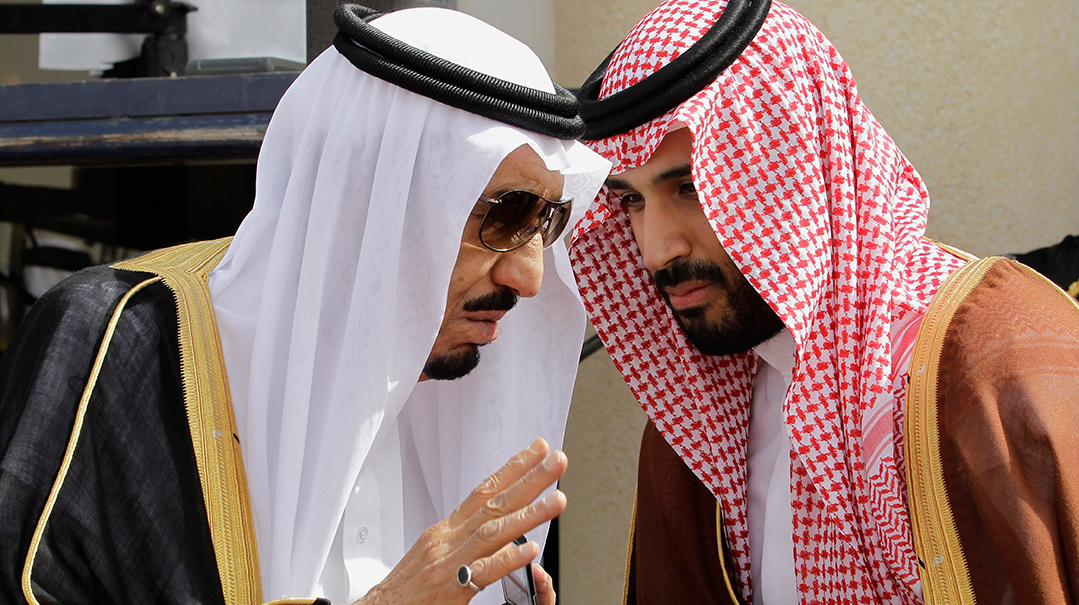Biden Cools It with Saudis

Saudi prince feels the chill as Biden gives cold shoulder

Just a couple of weeks ago, it seemed President Joe Biden simply wasn’t interested in engaging with the Middle East. Fast-forward to now, and Biden is trying to balance between Saudi Arabia and Iran, and between the just-declassified Khashoggi report and the JCPOA.
On Thursday, Biden ordered, for the first time since taking office, an attack on Iranian militia sites in Syria, following several attacks against US forces in Iraq.
The counterpunch came at a sensitive time, when the US and its European allies are considering a return to the 2015 Iran nuclear deal. Biden tried to signal to the Iranians that America would not bow down to their threats, but without creating irreparable damage to the prospects of negotiations of the JCPOA 2.0.
“You can’t act with impunity. Be careful,” Biden told reporters in Texas when asked what message he was sending Iran.
“I think there was an imperative to do something, without doing anything meaningful — thus, bomb empty buildings in a bombed-out Syria,” Ray Takeyh, a senior fellow at the Council on Foreign Relations, told Mishpacha.
Just hours before the strike, Biden spoke with King Salman of Saudi Arabia “to address the longstanding partnership” between their two countries, as the White House stated.
The call was notable for one aspect. In the Trump administration, most of the US-Saudi Arabia relationship went through Mohammad Bin Salman (MBS), the crown prince and de facto ruler. Shortly after Biden took office, the White House clarified that he intends to “recalibrate” the relationship with the kingdom, speaking only with the elderly king instead of with the crown prince.
Aside from Biden’s desire to speak with the country’s official head of state, there is another obvious reason for that: the US just released an intelligence report pinning the blame for the killing of journalist Jamal Khashoggi on MBS. It was fascinating to watch the ensuing Twitter exchange between two former US ambassadors to Israel.
Dan Shapiro, Obama’s ambassador, tweeted that “as long as MBS rules Saudi Arabia, the relationship with the US can and will function, but not as it has. His presence will impose those limits. As MBS and other Saudis contemplate his future role, they’ll have to consider whether Saudi Arabia’s own interests might be served by a different direction.”
David Friedman, who served as ambassador under Trump, responded: “Obama tried this too. He took an American ally, pushed it closer to the Muslim Brotherhood and almost destroyed Egypt, its people and its Peace Treaty with Israel. Does your team have any ideas besides bad ideas?”
Biden is trying to walk a fine line between these views. He released the intelligence report fingering MBS as likely being behind Khashoggi’s killing, but the report did not provide any “hard proof” that would embarrass the Saudis. And while Biden did raise the human rights subject in his call with the king, it was only briefly mentioned in the White House’s readout. Furthermore, Biden did not impose any personal sanctions on MBS — which drew a wave of serious criticism from liberals in Washington, including prominent journalists who argued that Biden was giving MBS a “free pass.”
“I believe he is trying to demonstrate a clear difference from Trump, especially on the issues of human rights, democracy, and values in foreign policy,” says veteran diplomat Dennis Ross, who served under Bill Clinton, George W. Bush, and Obama. “He believes we must promote the democracies in the world against the tide of authoritarianism. That said, I believe he also realizes that one has to strike a balance and it is not possible to achieve everything at once.”
One thing is clear: the US will need the Saudis in their battle to rejoin the 2015 nuclear agreement with Iran. To be more specific, the US would need at least one Middle East ally that will not oppose the return to the JCPOA. And as long as Saudi Arabia is a major regional player, human rights issues will probably take a back seat to those concerns. Dennis Ross tells Mishpacha that this reality colors the Biden administration’s view of the entire Middle East.
“With Saudi Arabia, we have multiple interests,” he says. “In fact, it is hard to see success on a variety of issues in the Middle East — Iran, normalizing with Israel, countering terror, blunting proliferation, discrediting radical Islamism, ending conflicts, etc. — without Saudi support and participation. So the Biden strategy is to balance interests and values with the Saudis by creating boundaries in the relationship and tempering Saudi policies that the administration sees as problematic.”
(Originally featured in Mishpacha, Issue 851)
Oops! We could not locate your form.













